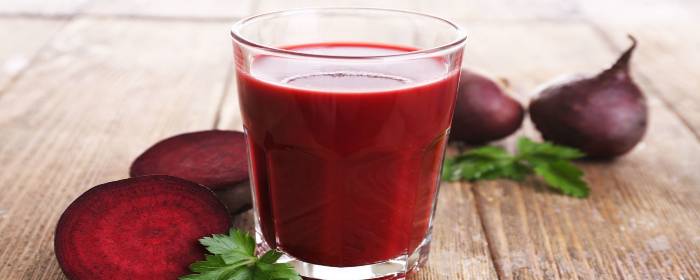
by admin | Oct 24, 2018 | Health Awareness, ALS, Multiple Sclerosis
Amyotrophic lateral sclerosis (ALS, also known as Lou Gehrig’s disease) and multiple sclerosis (MS) are similar in that they are both neurodegenerative disorders which impact the brain and central nervous system. Neither condition has a known cure, and both affect the muscles and nerves. Yet, the conditions have distinct difference between MS and ALS, particularly in terms of their symptoms. Here, we explore the ways in which these conditions are similar and then examine their distinctive qualities.
Similarities
Muscle Weakness: Weakness in the muscles of the arms and legs are common in both ALS and MS, as are difficulty walking and involuntary muscle spasms.
Speech Challenges: Slurred speech, while less common in MS, can be experienced by patients with both conditions. In ALS, this symptom worsens progressively, but it can be intermittent in people with MS.
Swallowing Problems: Dysphagia, or difficulty swallowing, is a symptom shared by both conditions. However, while it becomes progressively worse in patients with ALS, individuals with MS experience it to a lesser degree and intermittently.
Breathing Issues: ALS is characterized by the breaking down of the nerve cells in the brain and spinal cord, which control the muscles in your body. Thus, as muscles begin to atrophy, breathing complications become more pronounced. In people with MS, lung function is lower than normal, but shortness of breath is typically only noticed upon exertion, if at all.
Differences
Both ALS and MS scar the covering of the nerve fibers, but this happens differently in each condition. In MS, the myelin sheaths, coverings which protect the body’s nerve cells, are compromised. This impedes the brain’s ability to send signals to other parts of the body, which affects both voluntary and involuntary muscle movement. The symptoms of ALS, on the other hand, all involve nerves that control voluntary muscle movement.
The early stages of ALS vs MS Symptoms bear similarities to one another, like fatigue, trouble walking, muscle stiffness, and twitching are common in both. Yet, physicians are able to distinguish among the two fairly quickly, due to the following distinct symptoms.
Vision Impairment: While ALS sufferers may notice challenges with voluntary muscle movement, they often do not lose the ability to see. For MS patients, however, the optic nerve can become swollen, resulting in vision problems. In fact, up to 80% of all MS patients experience vision-related symptoms.
Bladder/Bowel Issues: Issues with involuntary muscles can present bladder challenges, including incontinence, in at least 80% of people with MS. Diarrhea is also common for MS sufferers. People with ALS may not experience either condition, but constipation is common in both illnesses.
Tingling/Pain: A select population of ALS patients experience tingling, but it is often temporary. For people with MS, however, sensory symptoms are common and pronounced. Numbness, tingling, and pain are reported by MS patients.
While the symptoms described above are commonly associated with ALS, MS, or both, having one or more of these symptoms does not mean a patient is afflicted with either condition. With that being said, it is always a good idea to have a physician weigh in on any new or unfamiliar symptoms to receive an accurate diagnosis and treatment plan.

by admin | Oct 18, 2018 | Health Awareness
Nitric oxide has been used in medical applications since the 1800s, but it wasn’t until fairly recently that scientist confirmed its presence in the body. In fact, its discovery by three pharmacologists in the 1990s won them the Nobel Prize. The compound was proclaimed molecule of the year in 1992, and for good reason: as a chemical messenger, its presence is essential in all living mammals. Discover what it is that makes this gas so important to our health below.
What is Nitric Oxide?
Nitric oxide is a colorless gas byproduct of reactions in which nitric acid is reduced. It’s long been known that miniscule amounts of the compound are released with exhalations. Yet, scientists originally didn’t think nitric oxide contributed much to bodily functions because its molecules are so small and have a lifespan of just a few seconds. Nonetheless, it was subsequently discovered that this couldn’t be further from the truth.
What Does It Do?
A key finding occurred in the 1990s when the American pharmacologists mentioned above discovered the compound’s role in the cardiovascular system. Specifically, the compound is produced by cells that line the artery walls. It then acts as a vasodilator that relaxes the arteries, thereby aiding in blood pressure regulation and overall circulation. Nitric acid also controls inflammation and oxidative stress.
In individuals with atherosclerosis, the root cause of heart disease and other vascular issues, the artery walls have a limited ability to produce nitric oxide. This spurs a dangerous cycle in which low nitric oxide levels further damage already compromised arteries, thereby increasing the likelihood of a cardiac event. With sufficient nitric oxide, however, artery walls stay healthy and blood circulation is optimized.
Beyond promoting cardiovascular health, nitric oxide also contributes to overall wellness in other ways. It supports white blood cell health and is used to fight serious illness, and it is also produced and used by the brain. As a signaling compound, nitric oxide is used for neurotransmission, which is why nitric oxide is touted for its potential to help minimize the risk of neurodegenerative conditions, such as Alzheimer’s disease.
Nitric oxide can support digestion by relaxing muscles in the gastrointestinal tract. It also plays a role in energy utilization, respiratory function, and a host of other important bodily functions. For these reasons, making sure your body has plenty of nitric oxide can help support overall wellness.
How to Optimize Your Nitric Oxide Levels
One way to increase nitric oxide is through your diet. While protein-rich sources such as meat may spur the synthesization of nitric oxide through the amino acid arginine, a better alternative may be to eat more leafy greens. While rich in nitrates and nitrites, which stimulate the body’s natural ability to produce nitric oxide, these plant sources are also low in calories. Beet juice is also rich in nitrates, so if you’re looking to increase nitric oxide through dietary measures, consider sipping two cups per day.
Because nitric oxide production is inhibited by free radicals, antioxidants could also deliver added health benefits. Green tea, onions, and other foods rich in flavonoids can prevent free radical damage, thereby protecting nitric oxide. Because exercised muscles demand additional nutrients and oxygen, physical activity can also spur the natural release of nitric oxide to support cardiovascular health.
Depending on your doctor’s recommendations, you may also consider taking a supplement to boost nitric oxide synthesis. Stemedix offers a nitric oxide supplement, Neo40 Professional. This supplement helps open up the blood vessels in the body to stimulate healthy circulation. Neo40 Professional achieves this task by activating the immediate production of nitric oxide gas as it is dissolving. Neo40 also fixes the enzyme responsible for the conversion of the amino acid named L-Arginine to nitric oxide thereby improving the body’s own ability to produce NO. This leads to an improvement in endothelial function and activity. Always check with your physician prior to starting any supplements.

by admin | Oct 10, 2018 | Health Awareness
A fecal transplant may sound like the work of fiction, but it is in fact very real and can even have a life-saving effect for people with certain medical conditions. Also referred to as a stool transfer or fecal microbial transplantation (FMT), the treatment involves the transfer of fecal matter from a healthy donor to a patient in need.
Why Would Anyone Need It?
To function properly, the digestive system requires a very specific equilibrium. When the intestinal tract’s microbiota, or its population of living microorganisms, becomes altered, serious health issues can occur, one of which is clostridium difficile infection (CDI).
CDI can be contracted in healthcare environments, and it can also occur as a result of taking strong antibiotics. While antibiotics are prescribed to fight serious infections, they also pose inherent risks. For one, they can also kill off the good gut bacteria, leading to CDI and its host of unpleasant symptoms, including severe abdominal pain, fever, and diarrhea. Transferring healthy stool into a patient’s gastrointestinal tract, either via enema, colonoscope, or nasogastric tubes, can help patients who have not responded to medications overcome CDI. In fact, it has a worked among 90% of patients who have received the treatment.
Could FMT Also Treat Other Conditions?
Beyond treating CDI, FMT has been used experimentally to treat other gastrointestinal conditions. Ulcerative colitis and irritable bowel syndrome, for instance, have been treated via FMT, because it changes the patient’s entire microbiome. Individuals with GI conditions tend to have a lower diversity of microbes in their guts. Because a more diverse microbiota is linked to better health, receiving a transplant from the right donor could be an effective therapy for patients with ulcerative colitis and similar conditions.
Recently, the interest in FMT has increased rapidly as scientists have begun to explore whether it can treat metabolic, autoimmune diseases, and neuropsychiatric diseases, as well as conditions such as multiple sclerosis, Parkinson’s disease, and chronic fatigue syndrome. Because a balanced gut microbiota plays an integral role in so many aspects of health (including immune system functionality), the healing potential of this innovative treatment could be tremendous. For patients afflicted with certain gastrointestinal conditions, treatment is already available. While other practical applications are limited, evolving research may soon make FMT available to address a broad range of health issues.

by admin | Oct 8, 2018 | Health Awareness
Neurological disorders affect the central nervous system, including the brain, spinal cord, and/or peripheral nerves. These conditions can impede speech, movement, learning, and even vital functions such as breathing and swallowing. They may also impact a person’s mood, senses, and memory. For individuals with these types of conditions, physical therapy (PT) can be a powerful component in a robust and individualized treatment plan.
While there is no cure for conditions like multiple sclerosis, Alzheimer’s disease, and Parkinson’s disease, treating the symptoms associated with these conditions can aid promote functionality, pain management, and overall quality of life. Here, we take a closer look at the role of physical therapy (PT) plays in the managing neurological disorders.
Minimize Symptoms
PT can be used to proactively minimize symptoms and slow their progression. Neurological physical therapy can reduce motor defects that impair nerve cell functionality through specific exercises. Before a patient experiences motor loss, physical therapy may help an individual stay fit and mobile.
Regain Functionality
Once symptoms do occur, the focus of PT shifts to helping a person relearn motor skills. Advanced neurological therapy may include balance and exercise activities, compensatory strategies to perform daily tasks, use of therapy equipment such as splints or braces, and gait training with the use of assistive devices. Therapy for speech, language and swallowing can also be provided as needed.
Preserve Skills & Abilities
After individuals with neurological conditions have regained skills or developed adaptive means, they can attend PT on an ongoing basis to preserve their abilities. PT programs can assist neuroadaptive and neuroprotective processes to support independence and social participation for patients even after symptoms have begun to impact their lives. In combination with other treatments such as medications and alternate forms of therapy, PT support an optimal quality of life for people with neurological disorders.

by admin | Oct 3, 2018 | Health Awareness, Stroke
Stroke is a serious, life-threatening condition in which the blood supply to the brain is interrupted or diminished, often resulting in permanent brain damage and disability. While nearly 800,000 people experience a new or recurrent stroke each year, these conditions are largely preventable. In fact, up to 80% of all strokes can be prevented.
Part of prevention comes from knowing to understand your risk factors. There are many factors contributing to the condition, including lifestyle, medical, and genetic factors, which are explored below.
Lifestyle Risk Factors
Smoking: Smoking can damage the blood vessels in many ways, causing thickening and narrowing and increasing the buildup of fat. This makes it more difficult for blood to get through, which can eventually lead to conditions like stroke and heart disease.
Being Overweight: Excess body weight produces similar effects: it can increase blood pressure and spike cholesterol levels, so exercising regularly and eating a diet consisting mostly of unprocessed foods can help to minimize your risk factors.
Heavy/Binge Drinking: A recent study linked frequent binge drinking to specific cardiovascular risk factors known to cause stroke, including high blood pressure, cholesterol, and blood sugar, at a younger age. The Stroke Association recommends limiting alcohol consumption to two drinks per day for men and one drink per day for women.
Medical Risk Factors
High Blood Pressure: High blood pressure puts physical pressure on your blood vessels, which can cause them to narrow, rupture, leak, or experience clots. Luckily, high blood pressure can now be controlled successfully through medications and lifestyle changes.
Diabetes: Type 2 diabetes is an independent risk factor for stroke, but when coupled with being overweight and having high blood pressure (which most patients with the disease have), the correlation is even stronger. Managing diabetes is critical to reducing risks of other serious conditions, including heart disease and stroke.
Other Risk Factors
Sex: Each year, more women than men have strokes. Certain factors such as pregnancy, gestational diabetes, oral contraceptive use (especially when combined with smoking), and hormone therapy can impact risk, so be sure to discuss your women’s health history with your physician.
Age: Individuals over the age of 55 are more likely to suffer a stroke than younger individuals. For this reason, minimizing risk factors wherever possible and maintaining regular preventive care appointments with physicians is essential in older adults.
Personal/Family History: If you’ve previously suffered a stroke or heart attack, or if someone in your immediate family has, you may face a higher risk of stroke. Individuals who have experienced cardiac issues should maintain the preventive care treatment plan recommended by their cardiologist.
While stroke isn’t always preventable, having even a basic understanding of these principles can help you maintain awareness and seek the right preventive care to help reduce your risk.






 St. Petersburg, Florida
St. Petersburg, Florida
